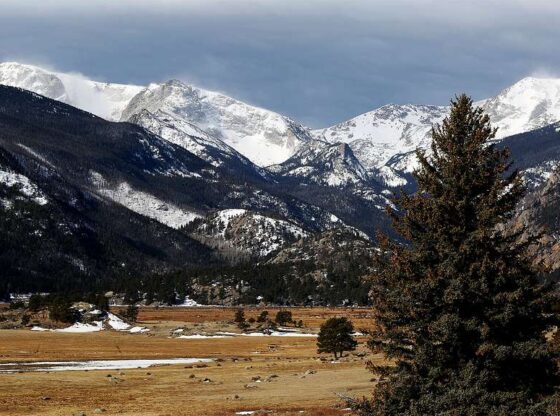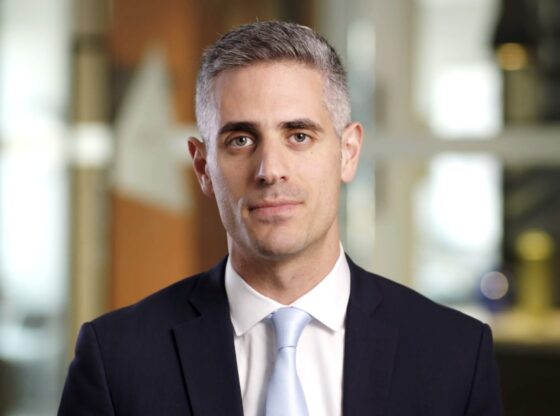On Mar. 2, a campus security officer opened a faculty office and removed a sign from their window that expressed “no confidence” in Jeremy Haefner, according to an email sent to CAHSS from Julia Richman,
the Senior Vice Chancellor for Operations & Strategy Implementation. The campus security officer then entered the anthropology laboratory and did the same.
I have personally seen campus safety remove “no confidence” signs from the street posts around campus. Reports of “no confidence” signs removal around campus started in early March, which “conveniently” coincided with the start of campus tours for prospective students.
The signs of “no confidence” on campus are part of an active campaign by both the faculty and students to express their distrust in Chancellor Haefner’s ways of leadership. This push started after the Haefner cabinet announced a massive budget cut to the College of Arts, Humanities, and Social Sciences.
Campus safety has begun to remove all forms of public dissent against Chancellor Haefner.
These affronts to freedom of expression happening on campus are not ones occurring in a vacuum, but in a much larger, national context. Donald Trump has continued to press the limits of repealing freedom of expression on a national level. An immigration judge recently ruled in favor of Trump’s decision to deport Mahmoud Khalil.
Khalil was a student from Columbia University who was detained by ICE officials on March 8, 2025. Trump, since his electoral campaign, has portrayed the goal of deportation as the removal of “criminal immigrants” from the United States. However, Khalil was not found guilty of any crime. The officials involved in Khalil’s deportation, such as Secretary of State Marco Rubio, have cited the cause for Khalil’s deportation as “going against foreign policy.”
Marco Rubio stated that Khalil was detained on the grounds of going against “U.S. policy to combat anti-Semitism around the world and in the United States, in addition to efforts to protect Jewish students from harassment and violence in the United States.” Khalil is not a criminal. He is being held in an immigrant detention facility and is scheduled for removal from the United States due to his speech against the state of Israel.
It is important to understand that the restrictions on freedom of expression happening at the national level are not divorced from the restrictions we have seen at the University of Denver. Trump’s agenda, with both his active role in the detention of student advocates and the pressure he is placing on institutions of higher education, is to remove public dissent of Israel and other “woke” ideologies from our learning institutions.
Michael Bender of the New York Times wrote, “Mr. Trump and his top aides are exerting control of huge sums of federal research money to shift the ideological tilt of the higher education system, which they see as hostile to conservatives and intent on perpetuating liberalism.”
Columbia has already struck a deal with the Trump administration to remove “woke” ideologies from their campus. The University of Denver, however, did not have to come to the meeting table with Trump. Haefner has demonstrated that his cabinet will follow Trump’s lead without any form of pressure.
Recently, the University of Denver has ratified a new “protest protocol” for campus safety. The protest protocol is not public-facing and was only made known by the students via several faculty leaks. The protest protocol is immensely restrictive. It has qualified for putting up posters and handing out flyers as “Level 1 Conduct Resulting in Limited Disruption.”
The new protocol explains that these actions may result in limited forms of staff intervention. Limited intervention such as: unlocking a tenured faculty’s office, ripping no-confidence posters down and quietly dropping them into the recycling.
In my time as a community advocate this year with the Student Union, we have continually tried to address the problem of active ICE raids happening around the campus. Although no ICE raids have happened on campus, the threat looms over the Denver area. Each time we talk to community leaders, we consistently hear that the administration is unwilling to make a statement or take action at this time, due to the fear that doing so will direct Trump’s ire on the University of Denver.
Although this may be a fair consideration, I cannot reasonably admit, given Haefner’s past and current decisions, that the University’s cabinet is doing this in the interest of the students.
Haefner’s administration has moved in parallel to Trump’s administration since the election. All of the restrictions felt at the national level will be met with lockstep action from Haefner’s cabinet. Haefner is not afraid of the Trump administration. His actions have demonstrated that he is relishing institutional changes that reflect Trump’s overall goals: the removal of dissent on college campuses.
It is at this time that we must make a stand for freedom of expression on campus. “No tyrants, no kings,” rings true from the top of the empire to our small campus in the foothills of the Rockies. If you would like to support the student effort to bring freedom of expression back to campus, please sign the no confidence petition and consider coming to Student Union meetings.












